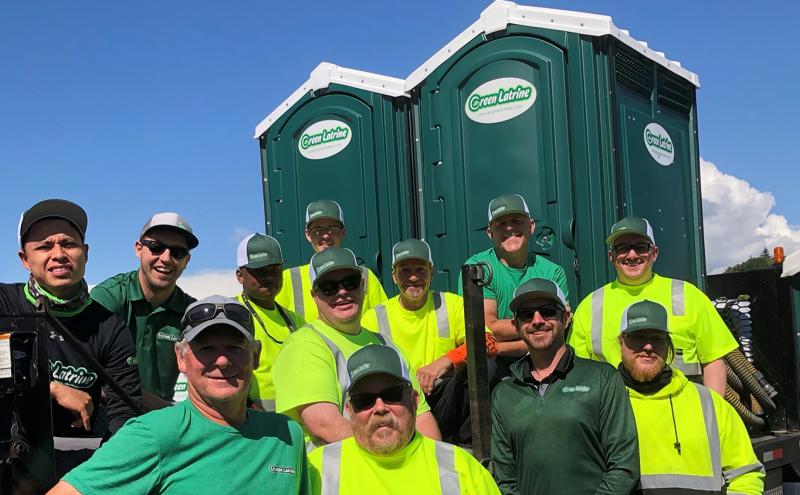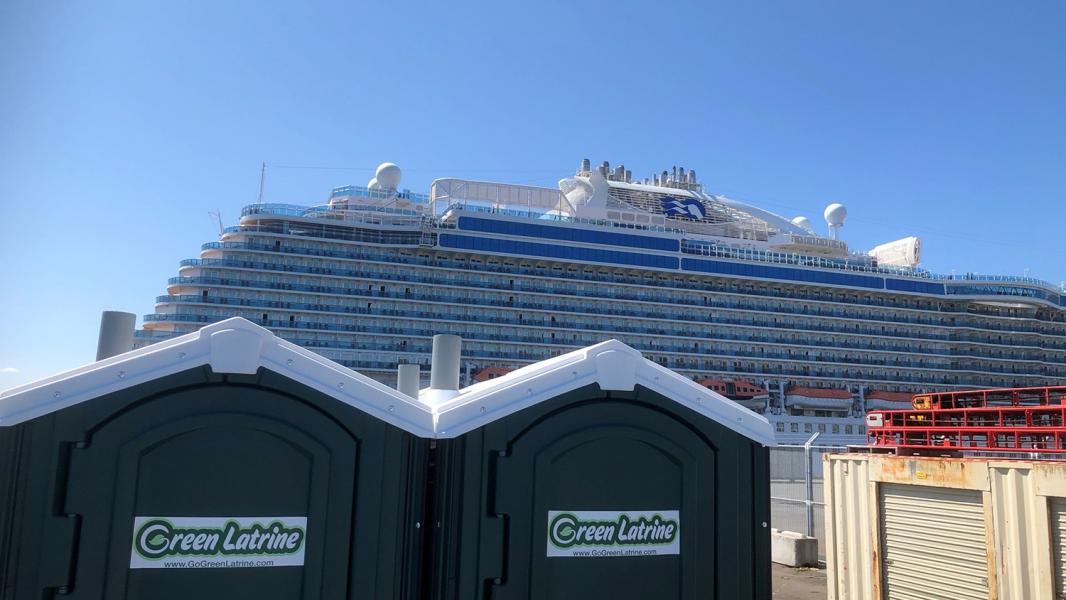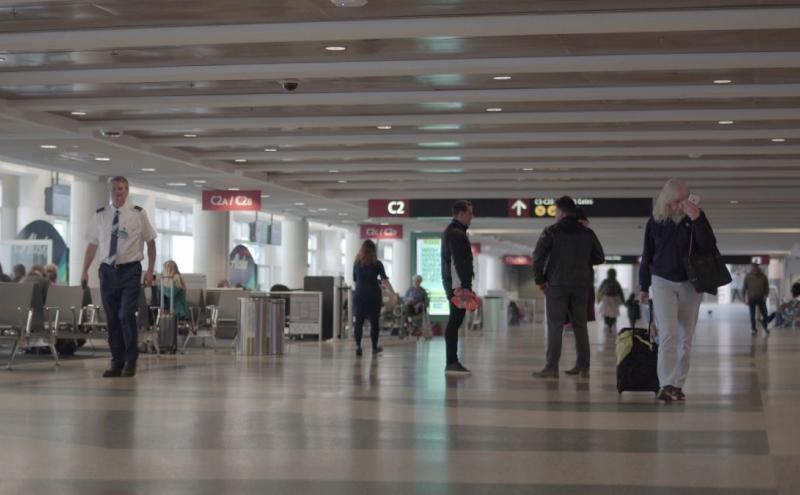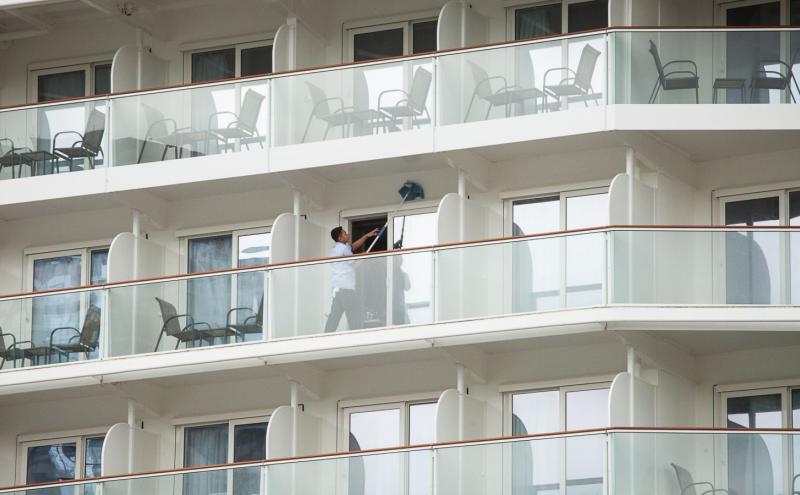
In spring 2020, Will and Kyleen Niccolls were planning for another busy summer for their family-owned Seattle business, Green Latrine. Summer in Seattle traditionally brings large outdoor events like street fairs, races, community gatherings, weddings, concerts, and sporting events with needs for portable toilets. Green Latrine provides clean, environmentally friendly portable toilets throughout King, Pierce, and Snohomish Counties.
The busy summer months (and their revenues) keep Will and Kyleen going through the winter when business slows and people typically shift to indoor activities. Anticipating a packed summer schedule, the Niccolls bought all the supplies they would need to keep their business going, like tens of thousands of rolls of toilet paper and hundreds of gallons of blue toilet deodorizer. But their best laid plans came to a screeching halt in March 2020 as the pandemic spread like wildfire throughout the globe.
“All of a sudden it was like a light switch went off,” Will said. “Event season was put on hold, and very quickly it became evident that it was not going to happen at all.”
A lifeline

After the initial panic, Will and Kyleen talked to some of their suppliers, and many were generous with payment terms and offered flexible repayment plans. This included the Port of Seattle, which offered rent deferral options to tenants struggling with the economic impact of the pandemic. Will and Kyleen rent an outdoor storage space at the Port of Seattle’s Terminal 91 facility.
As part of its regional economic recovery efforts, starting in April 2020 the Port provided timely relief to tenants in the form of deferments and lease adjustments. The Port’s rent deferral program was open to any tenant or moorage customer who could demonstrate a negative business impact from COVID-19. Forty-seven tenants out of around 200 executed deferral agreements and 31 vessel owners out of around 2,000 (1,500 recreational, 500 small fishing, 22 large fishing) also deferred moorage. As of publication, 64% of maritime tenants have paid off their balances.
Will said the flexibility with rent payments — including cutting payments in half, paying them in smaller parts, or adding on to future rent payments — made a big difference during a hard time.
“It was a big deal for us to have that,” Will said. “Our situation improved as the pandemic loosened up a little, but the rent deferral option and flexibility was 100 percent a stress reliever.”
As the pandemic stabilized and consumer demand changed, Green Latrine was able to pivot and regain its footing. It has paid back its deferred rent payments and is back to doing a robust business around the Puget Sound.
New customer segment
A month or two into the pandemic, demand for portable toilets increased as people shifted to the home renovation phase of the pandemic. As people were spending more time than ever in their homes, they were looking to maximize their living spaces. Green Latrine pivoted from toilets at large scale events to single toilets at remodel jobs in lawns and driveways as homeowners looked to update siding, replace windows, spruce up the paint job, and create outdoor living spaces while stuck at home.
“Pre-COVID, people would probably let the contractor and employees use the bathroom in their home, but now no one wanted a work crew in their house. They started springing for a separate bathroom for the work crew and sub crews,” Will said.
Green Latrine was all of a sudden bustling with new customers – including contractors and subcontractors, as well as representatives from athletic facilities or parks as people used the outdoors as a social and exercise outlet. With many buildings and bathrooms closed to the public, restaurants, businesses, and facilities turned to portable toilets to provide options for customers.
Green Latrine made up for any shortfalls in business by renting out portable hand wash sinks, a hot item in a COVID-19 world.
“We were super quick to act on purchasing hand wash sinks when the pandemic struck,” Will said. “We bought over 350 hand wash sinks and were able to deploy those when no one else in the market had them in stock.”
Sustainable beginnings

Will and Kyleen officially launched Green Latrine in the fall of 2015. With their nonprofit event planning backgrounds, they were new to the world of portable toilets. A friend in Calgary had started a similar company and showed them the ropes as they looked to start something of their own.
Toilets rolled out in 2016, and shortly after they moved operations to their current outdoor space at Terminal 91.
“Having the Port industrial space in Seattle available is so important,” Will said. “It’s challenging as a small business to find industrial space in the city core.”
The business has flourished, doubling in size every year, growing to its current staff of 21 employees. As a midsized locally owned company, Green Latrine is unique.
“There isn’t anyone similar to us,” Will said. “There are huge national companies, and small solo, owner operators. We are unique in our size and scale.”
Will and Kyleen’s background in the nonprofit world influenced the vision and values of Green Latrine.
“We saw firsthand how the portable sanitization industry supports nonprofits. Today that is a core a component of our business — our support of small community nonprofits,” Will said.
The portable toilet company also prioritizes living up to its “green” namesake, swapping out the formaldehyde commonly used in portable toilets with the enzyme biocide, which is 100 percent toxin free.
A sparkling future
With an uneven recovery from the pandemic, many people are hesitating to return to in-person events. Green Latrine has begun supplying toilets for some events with reduced attendee capacity and Will said he hopes for a return of more events as the pandemic slows down.
“I am 100 percent optimistic for next summer,” he said. “With the cruise season returning again we’ll be busy supplying portable toilets for rideshare pickup and drop off areas, transportation logistics for bus drivers, and passenger waiting areas. We really felt an impact from not having a cruise ship season (in 2020), and we have full faith that people will start to feel comfortable emerging for bigger scale events.”








